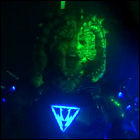 The ninth episode of Russell T. Davies’ children’s science fiction series Wizards vs. Aliens airs on CBBC., starring Annette Badland, Brian Blessed (Flash Gordon), and Gwendoline Christie (Game Of Thrones). Dan Starkey (Doctor Who) guest stars.
The ninth episode of Russell T. Davies’ children’s science fiction series Wizards vs. Aliens airs on CBBC., starring Annette Badland, Brian Blessed (Flash Gordon), and Gwendoline Christie (Game Of Thrones). Dan Starkey (Doctor Who) guest stars. ![]()

Earl Green is the creator, curator, and head writer of theLogBook.com.
 The ninth episode of Russell T. Davies’ children’s science fiction series Wizards vs. Aliens airs on CBBC., starring Annette Badland, Brian Blessed (Flash Gordon), and Gwendoline Christie (Game Of Thrones). Dan Starkey (Doctor Who) guest stars.
The ninth episode of Russell T. Davies’ children’s science fiction series Wizards vs. Aliens airs on CBBC., starring Annette Badland, Brian Blessed (Flash Gordon), and Gwendoline Christie (Game Of Thrones). Dan Starkey (Doctor Who) guest stars. ![]()
 The tenth episode of Russell T. Davies’ children’s science fiction series Wizards vs. Aliens airs on CBBC., starring Annette Badland, Brian Blessed (Flash Gordon), and Gwendoline Christie (Game Of Thrones). Dan Starkey (Doctor Who) guest stars in the first season finale.
The tenth episode of Russell T. Davies’ children’s science fiction series Wizards vs. Aliens airs on CBBC., starring Annette Badland, Brian Blessed (Flash Gordon), and Gwendoline Christie (Game Of Thrones). Dan Starkey (Doctor Who) guest stars in the first season finale. ![]()
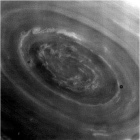 Making a close pass by the north pole of the planet Saturn – roughly the same distance as the average distance between Earth and its moon – NASA’s Cassini space probe captures unprecedented images of a hurricane-like storm vortex at the planet’s pole. With a diameter nearly as wide as the continental United States, the north polar vortex reveals vertical relief of various cloud features for the first time, and spins rapidly at the center of a hexagonal cloud feature nearly twice as wide as Earth itself.
Making a close pass by the north pole of the planet Saturn – roughly the same distance as the average distance between Earth and its moon – NASA’s Cassini space probe captures unprecedented images of a hurricane-like storm vortex at the planet’s pole. With a diameter nearly as wide as the continental United States, the north polar vortex reveals vertical relief of various cloud features for the first time, and spins rapidly at the center of a hexagonal cloud feature nearly twice as wide as Earth itself.
 The seventh episode of Arrow, a modern-day reboot of DC Comics’ Green Arrow superhero starring Stephen Amell, airs on the CW. John Barrowman (Torchwood, Doctor Who) guest stars.
The seventh episode of Arrow, a modern-day reboot of DC Comics’ Green Arrow superhero starring Stephen Amell, airs on the CW. John Barrowman (Torchwood, Doctor Who) guest stars.
This series is not yet chronicled in the LogBook. You could join theLogBook team and write this guide or support the webmaster’s efforts to expand the site.
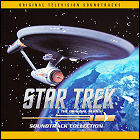 Soundtrack specialty label La-La Land Records releases a comprehensive 15-CD box set containing every note of music ever recorded for the three original seasons of Star Trek, a music collection long thought to be an impossibility due to decades of rumors of lost and damaged tapes. Over a year of work on restoration, remixing and remastering reveals that all of the show’s music – even tapes that, by musicians’ union regulations, should have been destroyed in the 1960s – still exists and can be licensed and released.
Soundtrack specialty label La-La Land Records releases a comprehensive 15-CD box set containing every note of music ever recorded for the three original seasons of Star Trek, a music collection long thought to be an impossibility due to decades of rumors of lost and damaged tapes. Over a year of work on restoration, remixing and remastering reveals that all of the show’s music – even tapes that, by musicians’ union regulations, should have been destroyed in the 1960s – still exists and can be licensed and released.
 The eighth episode of Arrow, a modern-day reboot of DC Comics’ Green Arrow superhero starring Stephen Amell, airs on the CW. Jessica De Gouw (Dracula) guest stars.
The eighth episode of Arrow, a modern-day reboot of DC Comics’ Green Arrow superhero starring Stephen Amell, airs on the CW. Jessica De Gouw (Dracula) guest stars.
This series is not yet chronicled in the LogBook. You could join theLogBook team and write this guide or support the webmaster’s efforts to expand the site.
 Loaded into an aerodynamic shroud atop an Atlas V rocket, the U.S. Air Force launches the X-37B unmanned spacecraft into Earth orbit. Originally scheduled for an October launch, the Boeing-built X-37B resembles a scaled-down Space Shuttle. Whereas this vehicle had previously stayed in space for several months in 2010 before returning, its second flight sees it remain in orbit for nearly two years, not coming in for an automated landing until October 2014. Details of the vehicle’s mission and payload remain classified; the flight is designated USA-240.
Loaded into an aerodynamic shroud atop an Atlas V rocket, the U.S. Air Force launches the X-37B unmanned spacecraft into Earth orbit. Originally scheduled for an October launch, the Boeing-built X-37B resembles a scaled-down Space Shuttle. Whereas this vehicle had previously stayed in space for several months in 2010 before returning, its second flight sees it remain in orbit for nearly two years, not coming in for an automated landing until October 2014. Details of the vehicle’s mission and payload remain classified; the flight is designated USA-240.
 Big Finish Productions releases the seventh Doctor Who audio drama in its Fourth Doctor Adventures range, starring Tom Baker and Louise Jameson. Chase Masterson (Star Trek: Deep Space Nine) guest stars.
Big Finish Productions releases the seventh Doctor Who audio drama in its Fourth Doctor Adventures range, starring Tom Baker and Louise Jameson. Chase Masterson (Star Trek: Deep Space Nine) guest stars. ![]()
 The ninth episode of Arrow, a modern-day reboot of DC Comics’ Green Arrow superhero starring Stephen Amell, airs on the CW. John Barrowman (Torchwood, Doctor Who) guest stars.
The ninth episode of Arrow, a modern-day reboot of DC Comics’ Green Arrow superhero starring Stephen Amell, airs on the CW. John Barrowman (Torchwood, Doctor Who) guest stars.
This series is not yet chronicled in the LogBook. You could join theLogBook team and write this guide or support the webmaster’s efforts to expand the site.
 Big Finish Productions releases the 168th Doctor Who audio drama in its main monthly range, starring Peter Davison and Sarah Sutton. Alexander Siddig (Star Trek: Deep Space Nine) guest stars.
Big Finish Productions releases the 168th Doctor Who audio drama in its main monthly range, starring Peter Davison and Sarah Sutton. Alexander Siddig (Star Trek: Deep Space Nine) guest stars. ![]()
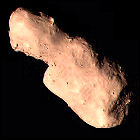 Originally launched by China to orbit the moon in 2010, and later parked at a LaGrange point beyond the moon’s orbit, the unmanned Chang’e 2 space probe flies by asteroid 4179 Toutatis at a distance of under two miles, capturing the first close-up images of the asteroid as it passes Earth almost half a million miles away. Though 4179 Toutatis has been imaged by ground-based radar on several occasions during its semi-frequent visits to the inner solar system, this is the first space probe to visit it at close range. As of this encounter, Chang’e 2 is the most distant Chinese spacecraft from Earth.
Originally launched by China to orbit the moon in 2010, and later parked at a LaGrange point beyond the moon’s orbit, the unmanned Chang’e 2 space probe flies by asteroid 4179 Toutatis at a distance of under two miles, capturing the first close-up images of the asteroid as it passes Earth almost half a million miles away. Though 4179 Toutatis has been imaged by ground-based radar on several occasions during its semi-frequent visits to the inner solar system, this is the first space probe to visit it at close range. As of this encounter, Chang’e 2 is the most distant Chinese spacecraft from Earth.
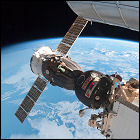 Part of the 34th full-time crew of the International Space Station lifts off from Russia’s Baikonur Cosmodrome aboard Soyuz TMA-07M. Roman Romanenko, Chris Hadfield and Thomas Marshburn take up residence on the ISS for 145 days, becoming part of the Expedition 34/35 crews. All three return to Earth in May 2013 aboard the same vehicle, with Hadfield becoming an internet sensation at the end of the mission with a cover of David Bowie’s “A Space Oddity” recorded aboard the station.
Part of the 34th full-time crew of the International Space Station lifts off from Russia’s Baikonur Cosmodrome aboard Soyuz TMA-07M. Roman Romanenko, Chris Hadfield and Thomas Marshburn take up residence on the ISS for 145 days, becoming part of the Expedition 34/35 crews. All three return to Earth in May 2013 aboard the same vehicle, with Hadfield becoming an internet sensation at the end of the mission with a cover of David Bowie’s “A Space Oddity” recorded aboard the station.
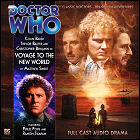 Big Finish Productions releases a Doctor Who / Jago & Litefoot crossover audio drama starring Colin Baker, Christopher Benjamin, and Trevor Baxter.
Big Finish Productions releases a Doctor Who / Jago & Litefoot crossover audio drama starring Colin Baker, Christopher Benjamin, and Trevor Baxter. ![]()
 The 792nd episode of Doctor Who airs on BBC1 (the 94th episode since the series’ revival). This is the series’ 2012 Christmas special, guest starring Richard E. Grant (Withnail & I) with a voice-over appearance by Sir Ian McKellen (The Lord Of The Rings trilogy).
The 792nd episode of Doctor Who airs on BBC1 (the 94th episode since the series’ revival). This is the series’ 2012 Christmas special, guest starring Richard E. Grant (Withnail & I) with a voice-over appearance by Sir Ian McKellen (The Lord Of The Rings trilogy). ![]()
 Legendary UK television producer Gerry Anderson, responsible for a string of puppet-based hit shows such as Thunderbirds, Supercar, and Stingray, and such live-action cult classics as UFO, Space: 1999, and Space Precinct, dies at the age of 83. Additionally, the Century 21 comics magazine (an extension of his company, Century 21 Productions), had provided the first-ever Doctor-less comics featuring the Daleks in the 1960s, arguably the birth of Doctor Who’s “expanded universe.” At the time of his death, there have been numerous attempts by others to modernize his concepts, with wildly varying degrees of success.
Legendary UK television producer Gerry Anderson, responsible for a string of puppet-based hit shows such as Thunderbirds, Supercar, and Stingray, and such live-action cult classics as UFO, Space: 1999, and Space Precinct, dies at the age of 83. Additionally, the Century 21 comics magazine (an extension of his company, Century 21 Productions), had provided the first-ever Doctor-less comics featuring the Daleks in the 1960s, arguably the birth of Doctor Who’s “expanded universe.” At the time of his death, there have been numerous attempts by others to modernize his concepts, with wildly varying degrees of success.
More about Space: 1999 in the LogBook
More about Space Precinct in the LogBook
 BBC subsidiary AudioGo releases the first Doctor Who: Destiny Of The Doctor audio drama, starring Carole Ann Ford.
BBC subsidiary AudioGo releases the first Doctor Who: Destiny Of The Doctor audio drama, starring Carole Ann Ford. ![]()
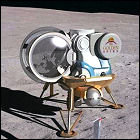 The recently formed Golden Spike company, focusing on commercial space exploration and exploitation, announces a contract with aerospace company Northrup Grumman – whose engineers designed and built NASA’s Apollo lunar landers in the 1960s – to do a design study for a new generation of lunar landing hardware. The contract only covers a design, which will need to be finalized so companies hoping to build the lander can bid on the actual construction contract.
The recently formed Golden Spike company, focusing on commercial space exploration and exploitation, announces a contract with aerospace company Northrup Grumman – whose engineers designed and built NASA’s Apollo lunar landers in the 1960s – to do a design study for a new generation of lunar landing hardware. The contract only covers a design, which will need to be finalized so companies hoping to build the lander can bid on the actual construction contract.
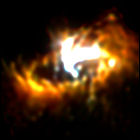 NASA reveals that its Boeing-747-mounted SOFIA (Stratospheric Observatory for Infrared Astronomy) telescope, during a 2011 flight in which its sensitive infrared sensors were aimed at the center of the Milky Way galaxy, captured an image of the super-massive black hole at the heart of the galaxy. A disc of dust and gas circling the center of the galaxy – seven light years across – lights up the image. The black hole is believed to have a mass of over four million times that of Earth’s sun.
NASA reveals that its Boeing-747-mounted SOFIA (Stratospheric Observatory for Infrared Astronomy) telescope, during a 2011 flight in which its sensitive infrared sensors were aimed at the center of the Milky Way galaxy, captured an image of the super-massive black hole at the heart of the galaxy. A disc of dust and gas circling the center of the galaxy – seven light years across – lights up the image. The black hole is believed to have a mass of over four million times that of Earth’s sun.
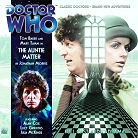 Big Finish Productions releases the seventh Doctor Who audio drama in its Fourth Doctor Adventures range, starring Tom Baker and Mary Tamm.
Big Finish Productions releases the seventh Doctor Who audio drama in its Fourth Doctor Adventures range, starring Tom Baker and Mary Tamm. ![]()
 Big Finish Productions releases the 169th Doctor Who audio drama in its main monthly range, starring Colin Baker and Bonnie Langford.
Big Finish Productions releases the 169th Doctor Who audio drama in its main monthly range, starring Colin Baker and Bonnie Langford. ![]()
 The tenth episode of Arrow, a modern-day reboot of DC Comics’ Green Arrow superhero starring Stephen Amell, airs on the CW.
The tenth episode of Arrow, a modern-day reboot of DC Comics’ Green Arrow superhero starring Stephen Amell, airs on the CW.
This series is not yet chronicled in the LogBook. You could join theLogBook team and write this guide or support the webmaster’s efforts to expand the site.
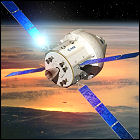 The European Space Agency and NASA sign an agreement allowing ESA to provide service modules for the upcoming Orion manned spacecraft, with the first module flying as part of an unmanned test scheduled to take place in 2017. While the Orion command module capsules will be built for NASA by contractor Lockheed Martin, the service modules to which the capsules will be connected are to be provided by ESA and customized for each mission (which could include long-duration flights to the moon, asteroids, or Mars). The service module’s “X-wing solar panel” design is derived from ESA’s Automated Transfer Vehicle cargo ferries dispatched to the International Space Station; ESA’s commitment to Orion will replace its obligation to provide further unmanned freighters to the space station.
The European Space Agency and NASA sign an agreement allowing ESA to provide service modules for the upcoming Orion manned spacecraft, with the first module flying as part of an unmanned test scheduled to take place in 2017. While the Orion command module capsules will be built for NASA by contractor Lockheed Martin, the service modules to which the capsules will be connected are to be provided by ESA and customized for each mission (which could include long-duration flights to the moon, asteroids, or Mars). The service module’s “X-wing solar panel” design is derived from ESA’s Automated Transfer Vehicle cargo ferries dispatched to the International Space Station; ESA’s commitment to Orion will replace its obligation to provide further unmanned freighters to the space station.
 NASA’s Deep Impact probe, already a veteran explorer of comets, turns its camera eye toward Comet ISON, a recently-discovered comet expected to put on a spectacular show even to the naked eye in late 2013. Originally launched in 1995 to study Comet Tempel 1 at close range, Deep Impact has since used its cameras to study other comets passing through the solar system. The distance between Deep Impact and Comet ISON at the time the 36-hour photo sequence is taken is roughly 493 million miles.
NASA’s Deep Impact probe, already a veteran explorer of comets, turns its camera eye toward Comet ISON, a recently-discovered comet expected to put on a spectacular show even to the naked eye in late 2013. Originally launched in 1995 to study Comet Tempel 1 at close range, Deep Impact has since used its cameras to study other comets passing through the solar system. The distance between Deep Impact and Comet ISON at the time the 36-hour photo sequence is taken is roughly 493 million miles.
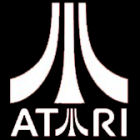 The 21st century iteration of Atari, now owned by the French video game company formerly known as Infogrames, files for Chapter 11 bankruptcy protection as it tries to disentangle itself from its parent company’s descent into insolvency. Revealed in the filing is that, despite numerous modern games distributed under the Atari “label”, licensing of the 1970s Atari logo accounts for almost one-fifth of Atari’s current revenue. The classic Atari game portfolio dating back to such games as Pong and Asteroids is put up for sale in an effort to raise funds for the troubled company.
The 21st century iteration of Atari, now owned by the French video game company formerly known as Infogrames, files for Chapter 11 bankruptcy protection as it tries to disentangle itself from its parent company’s descent into insolvency. Revealed in the filing is that, despite numerous modern games distributed under the Atari “label”, licensing of the 1970s Atari logo accounts for almost one-fifth of Atari’s current revenue. The classic Atari game portfolio dating back to such games as Pong and Asteroids is put up for sale in an effort to raise funds for the troubled company.
 The 11th episode of Arrow, a modern-day reboot of DC Comics’ Green Arrow superhero starring Stephen Amell, airs on the CW. Ben Browder (Farscape) and John Barrowman (Torchwood, Doctor Who) guest star.
The 11th episode of Arrow, a modern-day reboot of DC Comics’ Green Arrow superhero starring Stephen Amell, airs on the CW. Ben Browder (Farscape) and John Barrowman (Torchwood, Doctor Who) guest star.
This series is not yet chronicled in the LogBook. You could join theLogBook team and write this guide or support the webmaster’s efforts to expand the site.
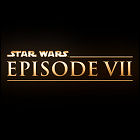 Word breaks across Hollywood that Disney has secured the services of J.J. Abrams, co-creator of Lost and director of the 2009 and 2013 movies set in a re-imagined Star Trek universe, to direct the much-anticipated Star Wars Episode VII, the first new movie in the series since Disney’s acquisition of Lucasfilm at the end of 2012. With a locked-in release date in 2015, Abrams is expected to start work on Episode VII as soon as post-production and promotion for Star Trek Into Darkness are complete for that movie’s May 2013 release.
Word breaks across Hollywood that Disney has secured the services of J.J. Abrams, co-creator of Lost and director of the 2009 and 2013 movies set in a re-imagined Star Trek universe, to direct the much-anticipated Star Wars Episode VII, the first new movie in the series since Disney’s acquisition of Lucasfilm at the end of 2012. With a locked-in release date in 2015, Abrams is expected to start work on Episode VII as soon as post-production and promotion for Star Trek Into Darkness are complete for that movie’s May 2013 release.
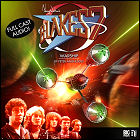 Big Finish Productions, under license from B7 Media, releases the first full-cast Blake’s 7 audio drama. Gareth Thomas, Paul Darrow, Michael Keating, Jan Chappell, Sally Knyvette, and Jacqueline Pearce reprise their roles from the television series.
Big Finish Productions, under license from B7 Media, releases the first full-cast Blake’s 7 audio drama. Gareth Thomas, Paul Darrow, Michael Keating, Jan Chappell, Sally Knyvette, and Jacqueline Pearce reprise their roles from the television series. ![]()
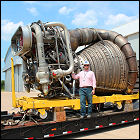 NASA recalls an actual 1960s F-1 engine – of which clusters of five once launched the mighty Saturn V rockets during the Apollo lunar program – from the Smithsonian for refurbishment and, for the first time in over four decades, re-firing on a test stand at Marshall Space Flight Center in Alabama. NASA engineers examine the properties of the F-1 engine – whose performance still outrates the engines used during the Space Shuttle program – to learn how to improve the J-2X engines planned for use in the first stage of the SLS (Space Launch System) booster that will launch Orion vehicles.
NASA recalls an actual 1960s F-1 engine – of which clusters of five once launched the mighty Saturn V rockets during the Apollo lunar program – from the Smithsonian for refurbishment and, for the first time in over four decades, re-firing on a test stand at Marshall Space Flight Center in Alabama. NASA engineers examine the properties of the F-1 engine – whose performance still outrates the engines used during the Space Shuttle program – to learn how to improve the J-2X engines planned for use in the first stage of the SLS (Space Launch System) booster that will launch Orion vehicles.
 The 12th episode of Arrow, a modern-day reboot of DC Comics’ Green Arrow superhero starring Stephen Amell, airs on the CW. Seth Gabel (Fringe, Salem) guest stars.
The 12th episode of Arrow, a modern-day reboot of DC Comics’ Green Arrow superhero starring Stephen Amell, airs on the CW. Seth Gabel (Fringe, Salem) guest stars.
This series is not yet chronicled in the LogBook. You could join theLogBook team and write this guide or support the webmaster’s efforts to expand the site.
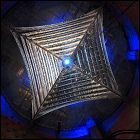 NASA announces plans to launch an experimental uncrewed test vehicle called Sunjammer into orbit in 2014, as a test of solar sail technology. Though not the first solar sail ever launched, Sunjammer be will the largest by far, its mainsail being incredibly thin Kapton with a surface area of 13,000 feet. The objective of the flight is to unfurl the sail and then use the solar wind to propel it to the L1 Earth-Sun LaGrange point nearly 2,000,000 miles from Earth. Sunjammer will be lifted into orbit by a SpaceX rocket in 2014, with both NASA and NOAA keeping a close eye on the results.
NASA announces plans to launch an experimental uncrewed test vehicle called Sunjammer into orbit in 2014, as a test of solar sail technology. Though not the first solar sail ever launched, Sunjammer be will the largest by far, its mainsail being incredibly thin Kapton with a surface area of 13,000 feet. The objective of the flight is to unfurl the sail and then use the solar wind to propel it to the L1 Earth-Sun LaGrange point nearly 2,000,000 miles from Earth. Sunjammer will be lifted into orbit by a SpaceX rocket in 2014, with both NASA and NOAA keeping a close eye on the results.